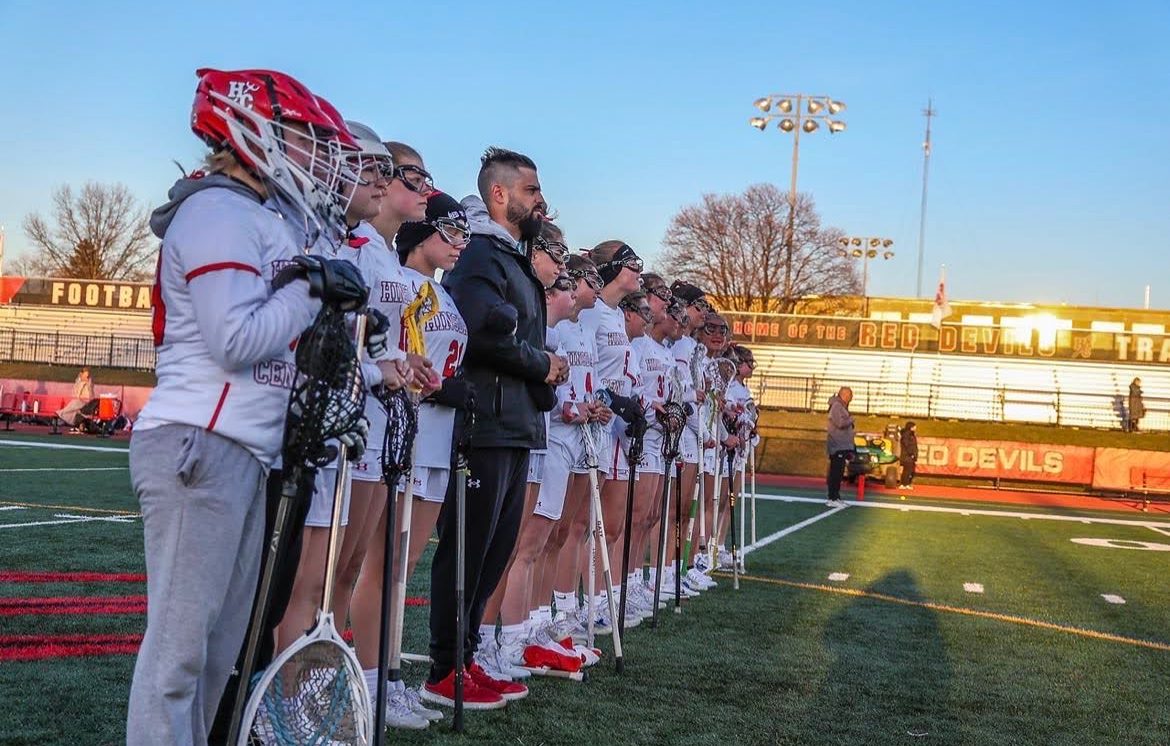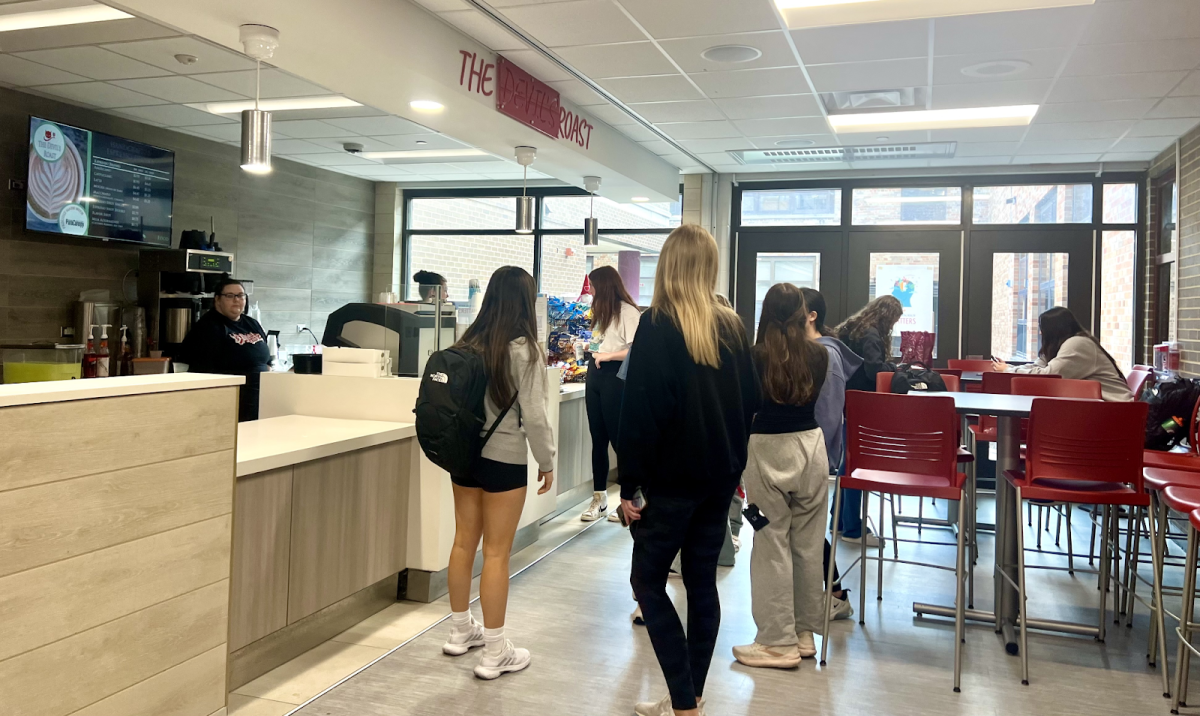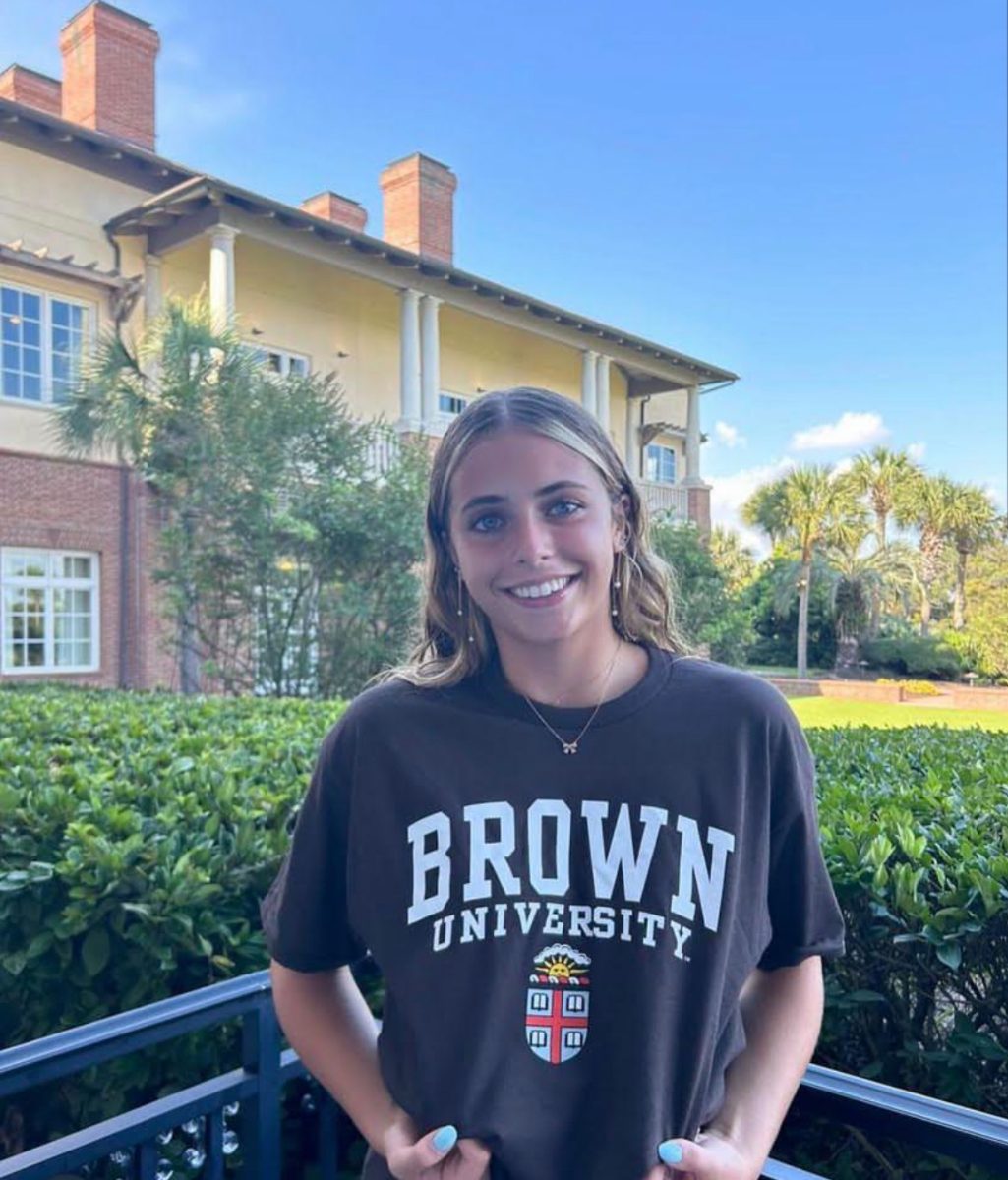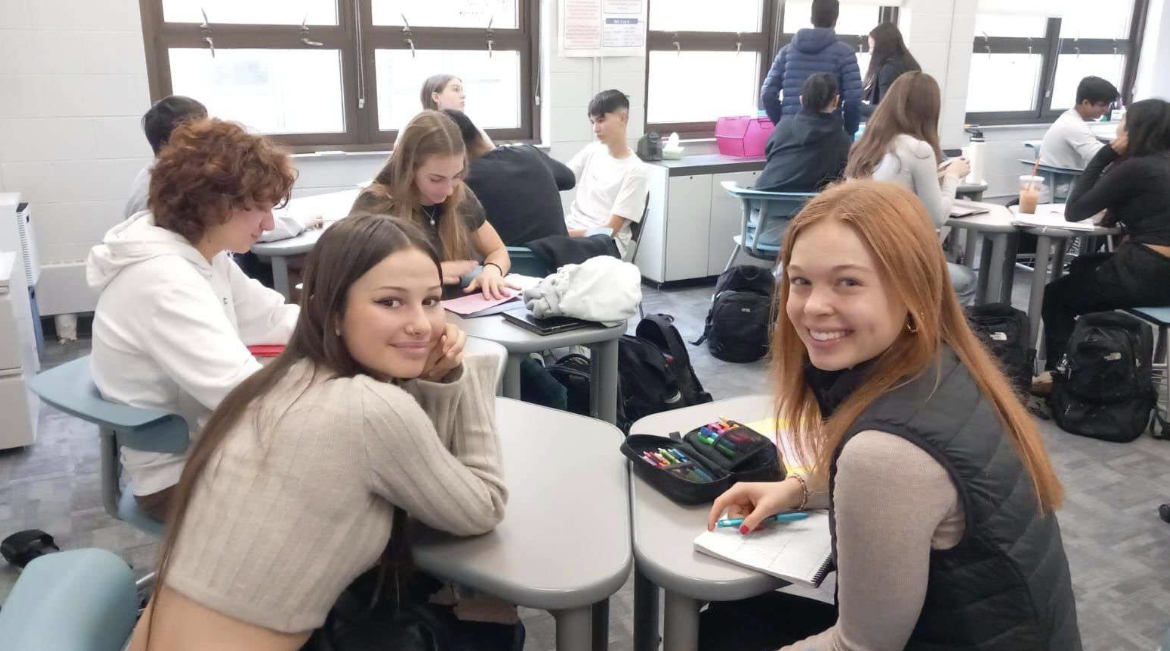As the hallways are buzzing with students trying to cram last minute, Kathleen Brennan slowly and reluctantly enters her chilly classroom, hoping that when she leaves in one and a half hours, it will be with a bounce in her step. As she takes her seat, she takes a deep breath, trying not to worry about the fact that this one ominous test could potentially make or break her semester grade. Knowing that every minute in the next one and a half hours is critical, she quickly checks her supply to see that she has enough pencils and erasers. While the late bell begins to ring, she lets out a long sigh because although she’s in for nearly two hours of nonstop stress in this class, she has nothing to worry about for her Philosophy and Ethics class. That’s because in that class, Mr. Freiler gave his students the option of an alternate final, which Kathleen gladly made use of.
Most students are familiar with the traditional semester exam because no matter what class you’re in, the format remains relatively the same. Usually the exam consists of fifty to one hundred multiple choice questions and, in some classes, a short essay or two. Students are given an hour and a half to take the exam, and if they studied all the right information and felt well and healthy that day, they might do well. And this isn’t just like any other test, which may be worth a lot within your quarter grade. This one test is worth exactly twenty percent of your semester grade, which does appear on college transcripts. In countless cases, many students’ grades really are on the edge, where this final exam grade could push them over the edge to the lower letter grade, or give them a boost into the realm of the higher semester letter grade.
On the other hand, alternate finals are exams, usually given in the form of some kind of project such as writing an analysis of a book or making a video, that are taken before the actual day of exams. Students are given the directions for the alternate final about a month or two ahead of time, plenty of time for the students to decide whether they want to put in the extra work ahead of time so that they do not have to risk their semester grades on that one day of testing.
Most teachers do not offer this option, usually because the format of the class does not allow them to, but many simply because it is relatively unconventional. But those who do offer the alternate final actually prefer this method of testing. Chris Freiler, who teaches both AP European History and Philosophy & Ethics, offers an alternative final to his Philosophy and Ethics class. “I usually provide interested students a list of books around Thanksgiving Break. I ask that they analyze it from philosophical standpoint. It’s not a book report though; it’s an analysis,” Freiler said. He does acknowledge that this way of testing is much more time consuming for the students, and for that reason he does not necessarily have a lot of students who opt to take that alternate final. “Ultimately it’s up to the students and whether they can put in the time commitment necessary to do well on the analysis. I generally say that if you haven’t read the book by the end of Winter Break, the alternative final is most likely not possible.”
Freiler believes that this option gives the students much more freedom and much more control over their final semester grade, rather than taking the conventional final that is only given once. He says, “When students take the conventional exam, they are leaving a lot up to chance. They have to hope that on that final exam day, they are feeling well, they got enough sleep the night before so they’ll be able to concentrate, they studied all the right things, they are able to recall it all in that short time period, and they don’t run out of time. In addition they have to take into account the stress levels and how that will affect their performance.”
Michael Palmquist, who teaches both AP Language & Composition and American Studies, shares the same ideas when he offers alternative finals to his American Studies class. “For the first semester of this year, I gave the option of alternate finals to my American Studies class. I asked that they make a fifteen minute video that addresses their choice of a series of questions about American History and Literature,” Palmquist said. Palmquist too believes that alternative finals give the students more freedom with their grade.
Both Freiler and Palmquist know that in the end, it’s about how much students actually learn during the semester, not just how well they can cram for tests. Freiler said, “I think it’s up to the teacher to decide what they want their students to take away from the class.” He thinks that alternate finals show much more deeply how much the student actually learned because as he points out, “Especially in a class like Philosophy & Ethics, there is no clear cut right and wrong answer. A lot is left up to the students’ interpretations and how and if they can persuasively support them. I think the book analysis is a better opportunity for the students to intrinsically learn and apply what they have learned in the class to real life.”
Palmquist echoes this belief, saying, “Ultimately the most important thing about finals is that they allow the student to showcase what they have learned in his/her teachers’ classes during the course of the semester.” Palmquist is a strong supporter of alternate finals, saying that he might even consider offering them to his AP Lang & Comp class. “I think that alternate finals allow the student to express more openly and freely what exactly they have actually learned in my class during the semester as opposed to showing how much they crammed in for the conventional final,” Palmquist said.
Alex Hipskind, who teaches Constitutional Law, is another teacher who believes in giving students another way to demonstrate what they have learned. He said, “In a civics course like this, it provides students an opportunity to apply the knowledge they have learned in a format other than multiple choice finals.” For his alternative finals, Hipskind provides options that involve a lot of first-hand experiences. “[The alternative finals I usually offer are] a teaching DVD, police ride-along, prison documentary, or inner-city shadowing,” Hipskind said.
But Hipskind also noted that less than ten percent of his students make use of this alternative final. Although most who have ever dealt with alternative finals agree that it is the safer option, many students do not feel comfortable with this option simply because they are not familiar with it so they do not want to take a risk. They would rather keep it constant and test the same way in all their classes.
However, Freiler does understand that in many classes the alternate final is simply not an option. For instance, he doesn’t offer that to his AP Euro classes because of the format and goals of class. “With AP Euro, students are eventually going to be evaluated based on the AP exam, which is a conventional style test. Giving my students an alternative would only be harming them because they wouldn’t be prepared for the AP exam,” Freiler said.
Students who opt for the alternative final say that they rarely regret the decision. Kathleen Brennan, senior, said that she was “very happy” with her decision. Brennan, who was in Freiler’s Philosophy class her first semester this year, said that she chose the alternative final in which she was to read a book and write a paper about it.
Brennan acknowledged that when it came down to picking between finals, she chose the alternative more than for the style of the exam. “I’m not a strong writer in Philosophy so it was mainly for the time constraints,” Brennan said.
Brennan also liked the difference in stress that she felt circulating the day of the final. “On the day of the final and a few days before, I didn’t have to worry about studying and I could avoid being really stressed. I didn’t have to worry about what was going to be on the day of the final,” Brennan said.
However, while students like Brennan enjoyed the option of the alternative final, many did not opt for it. Andrea Cladek, senior, was similarly in Freiler’s Philosophy class, and chose not to take it and to instead take the multiple choice formatted final. “I personally did better on the tests than on the papers so I preferred the test format,” Cladek said. Cladek also said that the majority of students in her class did opt for the regular final, along with her.
Although the majority did take the multiple choice final, she did acknowledge that the alternative final is still a helpful option for students. “The nice thing about the paper, though, is that you have more control and probably less pressure, since it was assigned over several weeks,” she said.
Danna Kashlan, senior, agrees with the advantages of alternative final. “I think it depends on the class but there are a lot of students in which the tests don’t really reflect their ability.”
However, with the advantages in having a second final comes a few disadvantages. One of the main concerns could be cheating on finals that require work outside of the classroom. Brennan said that “(the students) can work together and they only have to do half the work. The teacher would be very oblivious to their cheating.”
However, both Cladek and Brennan agree that the alternative final is great at giving students second opportunities. Brennan said that the concept in general of an alternative final helps students acquaint themselves with real world situations. “I think being able to apply what you learned instead of just answering questions in ‘ABC’ form is much more realistic to real life and it helps teachers see that the person is not only learning but are going further in applying what they know,” she said. “I think that’s more helpful in the long run.”








